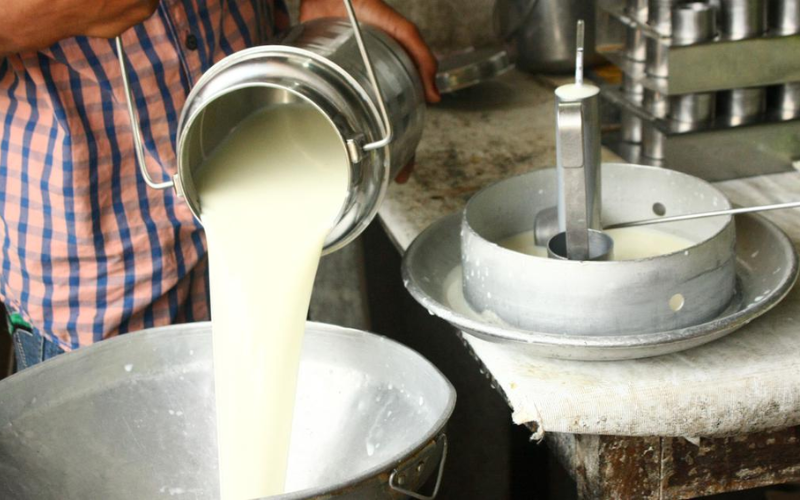The milk industry produces tonnes of wastewater. Plant-based coagulants can help clean up: Papaya seeds, lemon peels and powdered drumstick were the alternatives put to the test.
India has been the world leader in milk production since 1998, currently accounting for nearly 25% of global output. In 2024 alone, the country produced over 239 million tonnes of milk. While the dairy sector plays a vital role in India’s economy and rural livelihoods, a lesser-known and underreported consequence is the vast amount of wastewater it generates, a significant but overlooked environmental challenge.
Studies show the volume of wastewater produced by the sector is about 2.5 times greater than the amount of milk processed. A significant amount of wastewater is also produced while processing raw milk into consumer items such as yoghurt, butter, and cheese. Although traditional wastewater treatments, which involve the use of chemicals, have been used for decades, their cost and environmental impact have been a cause for concern.
A new study published in Environmental Monitoring and Assessment proposes natural coagulants as an eco-friendly alternative. “There is an increasing demand for water across the world, so it’s important to find ways to clean wastewater in a way that supports ecosystem health and reduces pollution,” says Lipsa Mishra, lead author of the study and assistant professor, MIT World Peace University.
Natural coagulants
In their study, Mishra and her team used Carica papaya seeds, Citrus limetta peels (sweet lemon), and Moringa oleifera (drumstick) in powder form as natural coagulants. Papaya seeds can attach to particles in water and sink to the bottom. Citrus limetta peels can recover significant nutrients for recycling or reuse, while also improving water quality, the study explains.
Importantly, Moringa oleifera’s antibacterial properties help inhibit bacterial growth in water, improving water quality and reducing the risk of waterborne diseases. Natural coagulants also contribute to maintaining pH balance of water and lowering biochemical oxygen demand, chemical oxygen demand, and turbidity levels, Mishra and colleagues note in the study.
News Courtesy : Scroll


